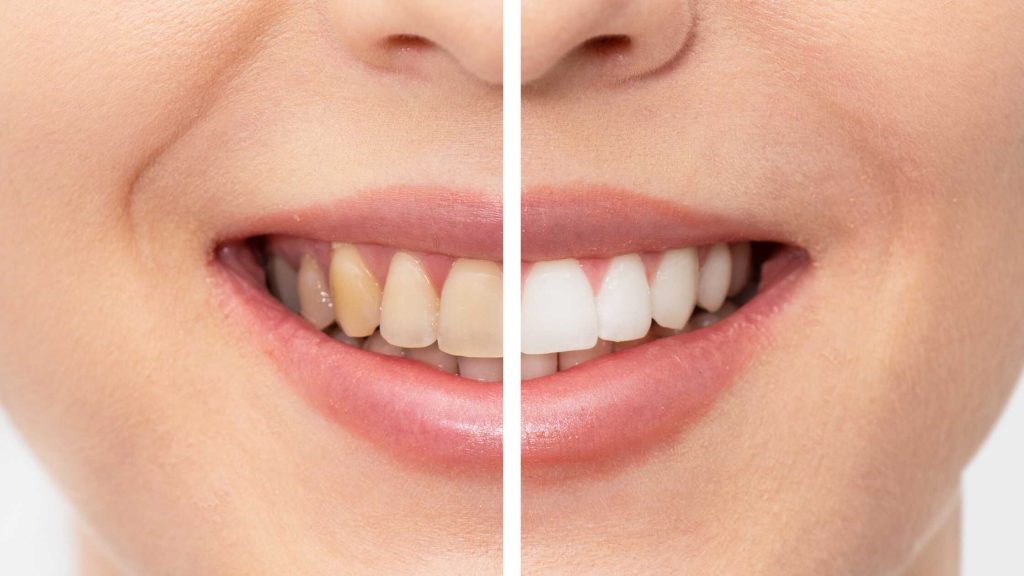Sensitive teeth whitening
Sensitive teeth whitening is a procedure that is used to whiten your teeth without damaging them. It can be done at home or in a dental clinic. It is a good way to whiten sensitive teeth and helps you to attain a brighter and more attractive smile. To understand why sensitive teeth whitening is required, it’s crucial to highlight the causes of tooth sensitivity. This condition is frequently brought on by tooth fissures, receding gums, or degradation of the enamel.
How Sensitive Teeth Whitening Operates
Products for sensitive teeth whitening are intended to be kinder and less harsh than conventional techniques. Fluoride and potassium nitrate, which work to strengthen teeth and lessen sensitivity, are frequently found in these products.
- Potassium nitrate inhibits the small tubules in the teeth that are in charge of sending pain sensations. This lessens discomfort caused by the whitening procedure.
- Another component frequently seen in sensitive teeth treatments is fluoride. This mineral lessens sensitivity while strengthening teeth and preventing cavities.
Sensitive Teeth Whitening at Home
There are over-the-counter whitening kits that are made exclusively for persons with sensitive teeth available. These kits frequently have a lesser dose of the whitening component, lowering the possibility of sensitivity. They could also include desensitizing gels that can be used before or after the bleaching procedure to lessen sensitivity further.
Sensitive teeth whitening by professionals
A dentist can offer a personalized whitening procedure that is catered to the patient’s demands. This can entail employing a more concentrated whitening product or a desensitizing gel while receiving therapy. It is advised to get professional assistance from a dental practice for more severe occurrences of sensitivity.
People with sensitive teeth can take additional steps to lessen discomfort throughout the whitening procedure and use specialized products and methods. As an illustration, brushing and flossing your teeth frequently is crucial to maintain proper dental hygiene and reduce the chance of sensitivity. The teeth and gums can also be safeguarded using a soft-bristled toothbrush, avoiding harsh or acidic foods and beverages.
Best Time to whiten sensitive teeth
The timing of the procedure is a significant factor when it comes to sensitive teeth whitening. It’s vital to schedule the treatment when sensitivity is likely at its lowest, because some people may notice that their teeth are more sensitive at specific times of the day or during particular seasons. Avoid using any whitening solutions right before or after dental treatments as teeth are more prone to sensitivity during these periods.
Conclusion
Sensitive teeth whitening is a secure method to whiten teeth without harming them. This approach will help you maintain good oral health. You should carefully follow the instructions whether you’re performing the procedure at home or in a dental facility, and you should get aid from a specialist if any problem arises. Consult a dentist or other dental experts at lifesmiles if you’re considering getting your sensitive teeth whitened and determine which procedure suits you.




